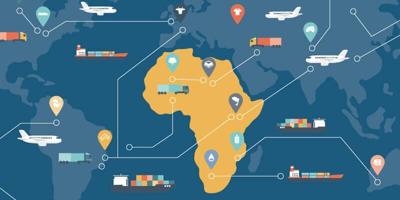
A renewed wave of pan-Africanism is sweeping the Caribbean,manifesting through increased tourism,cultural exchanges,and ambitious economic partnerships as island nations seek to reconnect with their ancestral continent,centuries after the transatlantic slave trade.
The movement extends beyond symbolic gestures,with Caribbean governments pursuing concrete initiatives including proposed shared currencies and enhanced trade links with African counterparts. Trade between the regions could reach $1.8 billion by 2028 from current levels of $730 million,according to African Export-Import Bank projections,contingent on infrastructure improvements.
In St. Lucia,Nigerian doctor Augustine Ogbo exemplifies the grassroots cultural exchange,operating a thriving Nigerian takeaway alongside his medical practice. His customers’ enthusiasm for dishes like jollof rice and egusi soup reflects broader regional interest in African heritage that has “grown tremendously” over the past decade,he told the BBC.
Social media platforms have accelerated cultural connections,with Caribbean youth discovering contemporary Africa through viral content and Afrobeats music videos that challenge outdated perceptions of the continent. Dennis Howard,a University of the West Indies lecturer,notes that Jamaicans increasingly recognize Africa’s development and modernity through these digital channels.
Tourism statistics support the trend,with Ghana’s tourism authority reporting notable increases in Caribbean visitors,while South Africa’s Bahamas consulate observes rising interest in African safaris and cultural tourism. However,travel remains complicated,often requiring European connections due to limited direct routes.
Barbados Prime Minister Mia Mottley has called for establishing “air and sea bridges” between the regions,while counterparts in Grenada and the Bahamas advocate for a shared digital currency to facilitate trade. These proposals face significant coordination challenges across more than 60 nations but reflect serious commitment to what Antigua’s reparations commission chairman Dorbrene O’Marde describes as a more economically focused,sustainable phase of pan-Africanism.
United News - unews.co.za